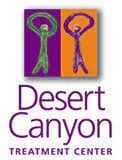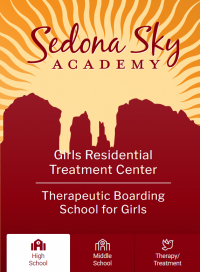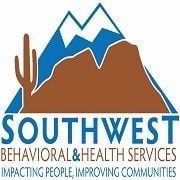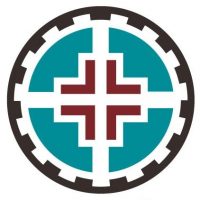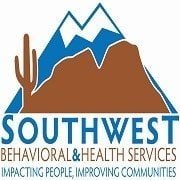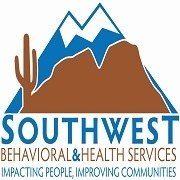Desert Canyon Treatment Center
Drug Rehab Center in Sedona, Arizona
Desert Canyon Treatment Center in Sedona, Arizona offers renowned addiction treatment services, including personalized and evidence-based therapies, inpatient levels of care, aftercare support, relapse prevention programs, and acceptance of most major private health insurances.
About Desert Canyon Treatment Center in Arizona
Desert Canyon Treatment Center is an addiction treatment facility located in Sedona, Arizona. This center offers comprehensive treatment programs for individuals struggling with alcoholism, dual diagnosis, opioid addiction, and drug addiction. With a focus on providing personalized care to each individual, Desert Canyon Treatment Center offers a range of services and treatment options to help individuals achieve sobriety and long-term recovery.
At Desert Canyon Treatment Center, individuals can access various levels of care, including inpatient treatment, drug rehab, and aftercare support. The center understands that addiction is a complex issue that often requires a multidimensional approach, and as such, they provide a holistic and integrated treatment model. This model combines evidence-based therapies, such as cognitive-behavioral therapy and individual counseling, with complementary therapies like yoga, meditation, and art therapy.
Desert Canyon Treatment Center also recognizes the importance of addressing co-occurring mental health disorders, known as dual diagnosis. They provide specialized treatment programs that address both addiction and mental health issues simultaneously, ensuring that individuals receive the necessary support for their specific needs. With a commitment to providing high-quality care, Desert Canyon Treatment Center is dedicated to helping individuals break free from the cycle of addiction and achieve lasting recovery.
Genders
Ages
Modality
Additional
Conditions and Issues Treated
Opioid addiction starts when a person becomes addicted to legal or illegal opioids. The addiction can happen quickly, in just a matter of days. Opioid withdrawal can be extremely uncomfortable and lead the user to continue to use even if they want to quit. Stopping using an opioid requires medical observation. Sometimes inpatient treatment with a medically supervised detox is necessary for managing the withdrawal process while learning lasting tools for maintaining recovery. Medications may be used in some cases of opioid addiction.
Opioid addiction is one of Arizona‘s most prominent forms of addiction. It’s treated by detoxifying the body so that the chemicals from the medications no longer impact them and by therapies to correct behavior and target the root of the problem.
Levels of Care Offered
This center offers a variety of custom treatment tailored to individual recovery. Currently available are Aftercare Support, Drug Rehab, Inpatient, with additional therapies available as listed below.
Individuals who are suffering from severe addiction or have a high risk for dangerous health concerns are often recommended to receive inpatient treatment.
Choosing to enter an inpatient treatment program is beneficial for people who are suffering from severe addiction, or who have a high risk for dangerous health concerns.
Inpatient treatment is beneficial for:
- People who have a history of severe withdrawal.
- People who have attempted to overcome addiction on their own without success.
- People who have a history of relapse, or have recently relapsed.
- People at risk for drug overdose or withdrawal-related complications.
- People with medical conditions that are worsened by drug or alcohol use.
Aftercare support should take place after outpatient treatment has ended. There are a few different types of aftercare support that patients can seek. These include 12 Step, Self-help groups (AA, NA), Therapeutic communities, Long-term, structured sober living arrangements, and Halfway houses (residential treatment centers).
Therapies & Programs
Individual therapy involves one-on-one sessions between the patient and therapist. It provides patients with a safe environment to openly discuss personal and sensitive issues with the therapist. They find the therapist as someone they can trust. Individual therapy aims to identify the core issues that would have led the patient to substance abuse and address them effectively. The therapist can develop patient-specific customized solutions through individual therapy, which aids speedier recovery.
Family therapy is a group problem-solving that aims to improve communication and relationships between the addict, their family, and sometimes friends. The main goal of family therapy for drug addiction is to create an environment where communication can occur without judgment, hostility, or blame. The therapist is with the family as they learn to communicate differently, especially with the addict when s/he is using. The family can learn to reduce their enabling behavior or rally together and support each other during tough times.
An addict’s family can play a vital part in helping them to avoid relapse because they can spot the warning signs and help them get back on track before it becomes too much of a problem. Family therapy is one of the most effective ways to help addicts stay on the path to long-term sobriety. When a drug addict decides that they want to try and get sober, it takes the support of every person they love to succeed. It can be incredibly difficult for loved ones to watch an addict go through the pain and suffering of withdrawal, but by being there with them and supporting them, they can help to make sure that the addiction never returns.
Groups typically involve meetings with other recovering addicts who can relate to one another’s experiences. They might meet in person or online and typically focus on the process of staying sober rather than overcoming a specific addiction.
In these groups managed by Desert Canyon Treatment Center, addicts can build a sense of community and develop strong emotional connections with others who understand what they are going through. These beneficial relationships can help addicts overcome their cravings and prevent relapse at any point during the recovery process.
Since addiction is a chronic physical and mental illness, addicts need to learn as many life skills as possible. Many drug treatment centers offer life skills activities as part of their addiction recovery programs. Examples include cooking classes, employment training, resume writing seminars, parenting classes, and computer training. Life skills activities help addicts find employment, take care of their families, and give back to the community.
The goal of medical nutrition therapy for drug and alcohol addiction is to help patients avoid “trigger” foods. For example, someone who craves alcohol may be addicted to sugar. Making sure this person eats a balanced diet with recommended amounts of protein, vegetables, and fruit can help manage urges to drink.
Nicotine replacement therapy treats nicotine addiction using external sources of nicotine, such as patches or gum to substitute for nicotine. This allows people trying to quit smoking to get their desired dose of nicotine without actually having to smoke cigarettes. The idea behind NRT is that by providing smokers with nicotine in forms that are not cigarettes, they may be more likely to quit smoking.
NRT has been available for many years now, and there is a wealth of evidence that shows that it helps people trying to quit smoking. There are several different types of NRT devices on the market now. Patients interested in quitting smoking should talk to their doctors about the best kind of NRT for them.
Patient Experience
Creative Arts
Creative Arts Therapy is a combination of several different types of art forms offered by Desert Canyon Treatment Center. Music, painting/drawing, writing, and drama are just some examples. It can help with mental illness and addiction.
CAT is a form of art therapy at Desert Canyon Treatment Center that uses creative activities such as music, painting, drama, and writing to help patients explore their feelings, develop social skills, and manage behavior. It is particularly effective with people who may not respond to other forms of therapy or lack the motivation to take part in more traditional forms of therapy. When combined with counseling, CATT can help people struggling with addiction or mental illness access their inner voices and discover their unique potential.
Fitness Therapy
Another unique benefit of addiction treatment services is fitness therapy. In addition to being therapeutic in its own right, an exercise regiment can support a recovering addict’s sobriety by:
- Encouraging healthy eating and exercise habits to really get the body back into good working order
- Providing a distraction from cravings and underlying psychological issues that could lead to relapse
- Gaining a sense of accomplishment from completing physical challenges that further personal development
- Improving cardiovascular health and circulatory system functioning and increased energy levels to help the body stay active and enhance mood
Payment Options Accepted
For specific insurance or payment methods please contact us.
Is your insurance accepted?
Ask an expert, call (888) 674-0062
Additional Details
Specifics, location, and helpful extra information.
Sedona, Arizona 86336 Phone Number(888) 811-8371 Meta DetailsUpdated November 25, 2023
Staff Verified
Desert Canyon Treatment Center Patient Reviews
There are no reviews yet. Be the first one to write one.
Sedona, Arizona Addiction Information
Arizona has some of the highest rates of prescription drug abuse in the United States. Methamphetamines, heroin and morphine are among the most commonly abused substances. Prescription pain relievers were prescribed to 348 million people in 2012, enough to medicate every adult in Arizona for 2 full weeks. The number of people with substance use disorders in Arizona has remained relatively constant over the past few years.
Sedona, Arizona's drug addiction situation is unfortunately severe. In 2013, there were approximately 191 drug overdose deaths in Sedona, and many of those deaths were likely due to opioids like heroin and prescription painkillers. Prescription painkillers like oxycodone and hydrocodone were responsible for the most drug overdose deaths from 2015 to 2017. Common treatments include inpatient or outpatient treatment, 12-step programs, and detoxification.
Treatment in Nearby Cities
- Fort Defiance, AZ (165.8 mi.)
- Anthem, AZ (71.6 mi.)
- Arizona City, AZ (146.1 mi.)
- Las Vegas, AZ (211.3 mi.)
- Scottsdale, AZ (95.0 mi.)
Centers near Desert Canyon Treatment Center
The facility name, logo and brand are the property and registered trademarks of Desert Canyon Treatment Center, and are being used for identification and informational purposes only. Use of these names, logos and brands shall not imply endorsement. RehabNow.org is not affiliated with or sponsored by Desert Canyon Treatment Center.
